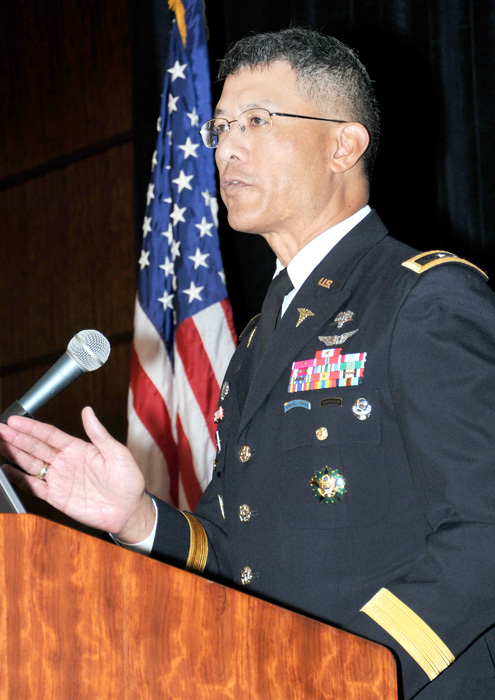Military Health System Research Symposium Underway

Hundreds of military medical clinicians and scientists gathered to kick off the 2013 Military Health System Research Symposium at the Harbor Beach Marriott in Fort Lauderdale, Fla. Aug. 12.
During the opening session, Deputy Assistant Secretary of Defense for Force Health Protection and Readiness Dr. David J. Smith welcomed attendees and addressed the value of the 4-day Department of Defense conference, which brings together scientific military, academia, industry leaders and researchers from around the globe to discuss advancements in research and health care developments in the areas of combat casualty care, military operational medicine, clinical and rehabilitative medicine, and military infectious disease programs.
"This really is a mission-essential symposium and it's of critical importance because it provides a forum to address the unique medical needs of our warfighter in a collaborative environment where the (military health system) providers with deployment experience, scientists, academia and industry experts come together to exchange scientific information, drive innovation and ensure continued advancement in military medicine," said Smith.
The conference is the careful combination of three previous conferences: the former Advanced Technology Applications for Combat Casualty Care Conference; the Air Force Medical Service Medical Research Symposium; and the Navy Medicine Research Conference. By combining these into one event, the meeting serves as a critical strategy session for leaders to set future milestones for DoD's deployment-related medical research programs, centered on the warfighter's needs.
"Our fighting men and women ask three things from us. Number one is that we give them the best training and the best equipment in the world. Number two is that we give them the best medical treatment in the world, and number three is that we do not leave any American behind," said Congressman John C. Fleming, M.D., from the 4th Congressional District in Louisiana and a member of the Armed Services Committee, who attended this year's MHSRS plenary session.
Research has led to many health care advancements in combat casualty care during the past decade, but military leaders emphasized that the work doesn't end when troops return home.
"As combat draws down, military medicine must continue at full pace because we have thousands of beneficiaries with complex, unique physical and mental injuries," said Maj. Gen. Joseph Caravalho Jr., commanding general of the USAMRMC and Fort Detrick. "We must not lose momentum."
 An official website of the United States government
An official website of the United States government
 ) or https:// means you've safely connected to the .mil website. Share sensitive information only on official, secure websites.
) or https:// means you've safely connected to the .mil website. Share sensitive information only on official, secure websites.


